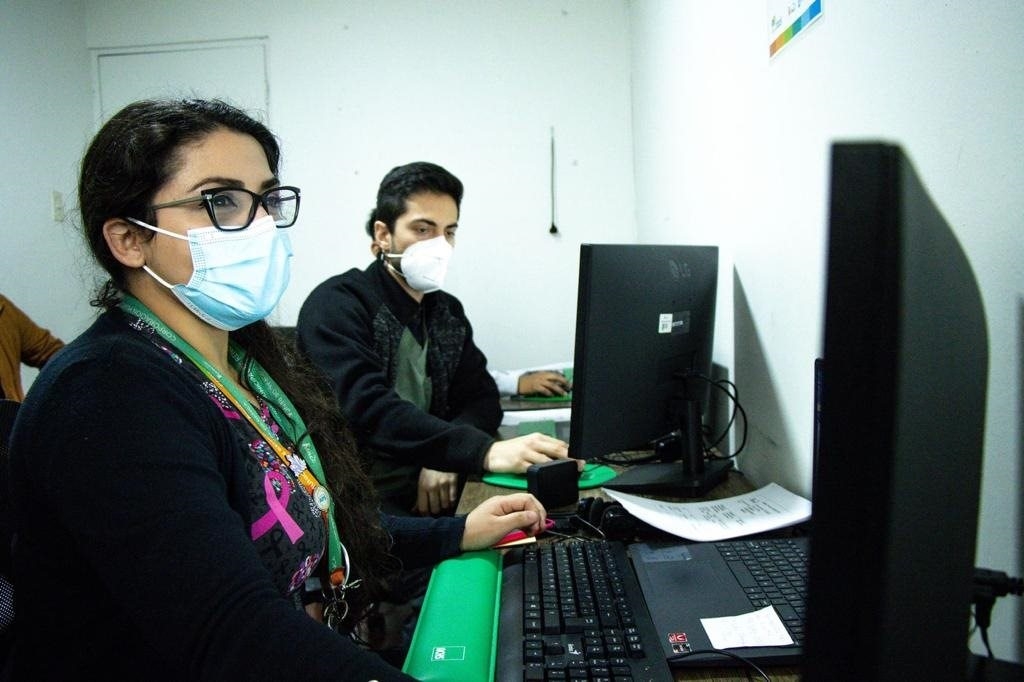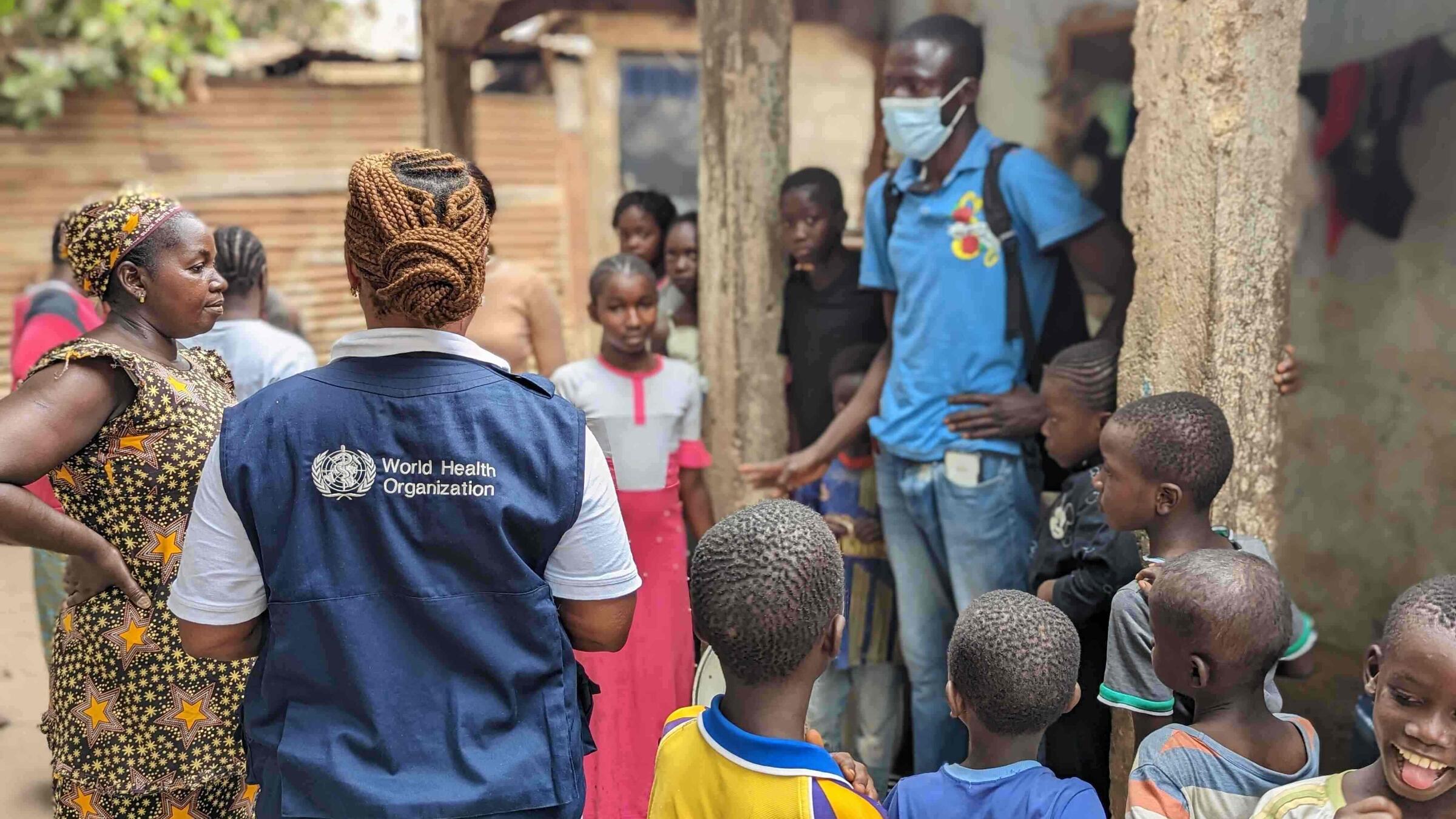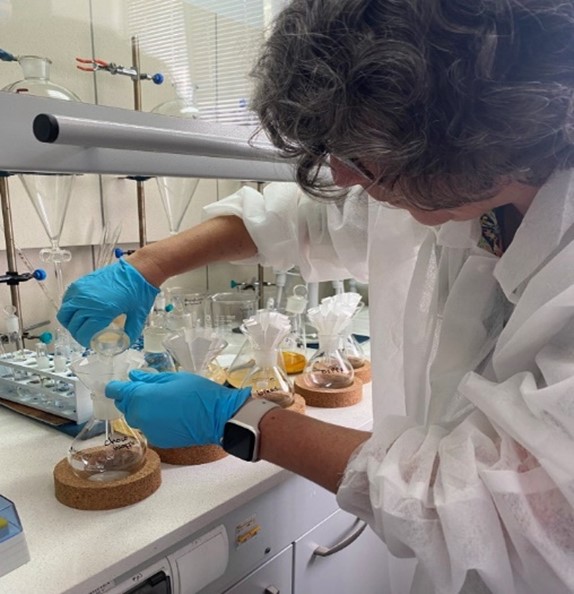
INVESTMENT ROUND: IMPACT STORY
Supporting pharmaceutical production in India
Strengthening the quality and sustainable local production of medicines and other health technologies in India

A pharmacist at the Gadiras Primary Healthcare Centre in Chhattisgarh, India diligently stocks shelves with essential medicines.
323
pharmaceutical enterprises benefited
1115
individuals engaged
1 in 2
companies approved for export
The COVID-19 pandemic underscored the importance of anticipating potential disruptions in the supply chain for essential medicines and other health technologies. This prompted a focus on bolstering local production capabilities around the world.
India, dubbed the "pharmacy of the world," is the origin of 60% of medicines prequalified by WHO for global use. The production of medicines is a cornerstone of India’s economy and India already is a major player in the global pharmaceutical supply chain.
The Government of India and WHO launched a South-South cooperation capacity-building programme for small and medium enterprises, collaborating to strengthen the quality and sustainable local production of medicines and other health technologies.
As part of this collaboration, WHO designed, facilitated, and monitored training sessions, exploring key areas such as formulations, active pharmaceutical ingredients, medical devices, and diagnostics. These sessions benefited 1115 individuals from 323 pharmaceutical enterprises, enhancing understanding of current Good Manufacturing Practices within a risk-based and quality system-based framework, and preparing them to meet WHO prequalification and other international quality standards.
The programme yielded notable results: five out of ten participating enterprises obtained approval for exporting medicinal products from regulatory bodies.
Initially launched in India, this initiative is poised for expansion to other Member States across the South-East Asia Region, with a pilot set to commence in Nepal in 2024.
As this collaborative effort gains momentum, it holds the potential to catalyze transformative change globally, fostering sustainable development and equitable access to medicines and other health technologies worldwide.
India's remarkable journey towards bolstering local production capacities for medicines and other health technologies, with support from WHO, stands as a testament to resilience and innovation amidst the challenges posed by the COVID-19 pandemic.
→ Read the full story on supporting pharmaceutical production in India
Return on investment
/invest-visual-provide-health.png?sfvrsn=67b0de9_3)
A fully funded WHO will enable the Organization to "provide health" with people accessing health services without financial hardship to 5 billion people by 2028.
The South-South cooperation capacity-building programme in India is an example of WHO delivering on the "Health and care workforce, health financing and access to quality-assured health products substantially improved", strategic objective 3.2 in the Fourteenth General Programme of Work (GPW 14). An end-to-end approach will assess and enhance access to safe, effective and quality-assured health products that are affordable and acceptable, while contributing to local and regional resilience and self-reliance, including through geographically diversified, sustainable and quality-assured production capacity.
Funding the future
WHO's and India's South-South cooperation capacity-building programme wouldn't have been possible without funding.
To continue cooperations like this, WHO needs sustainable financing, that is, predictable, flexible and resilient. This will allow WHO to have the greatest impact where it is needed most. Please support the WHO Investment Round.
/invest-visual-investing.png?sfvrsn=dbf748b9_20)


